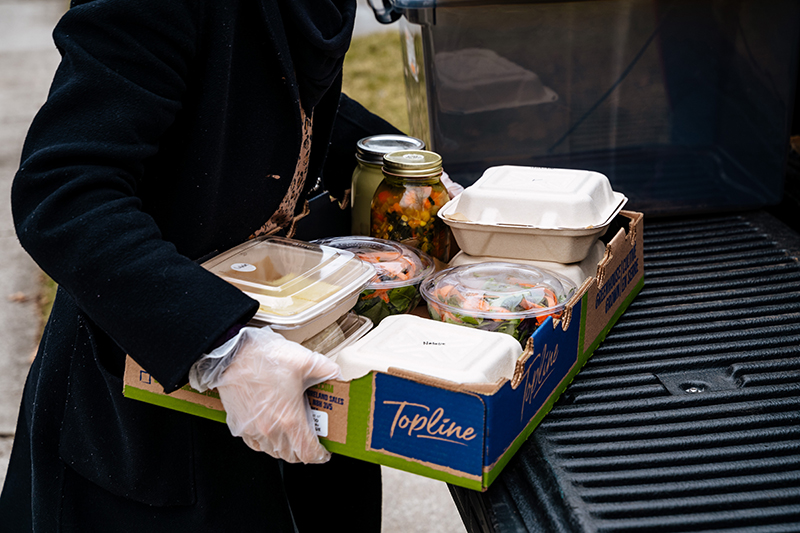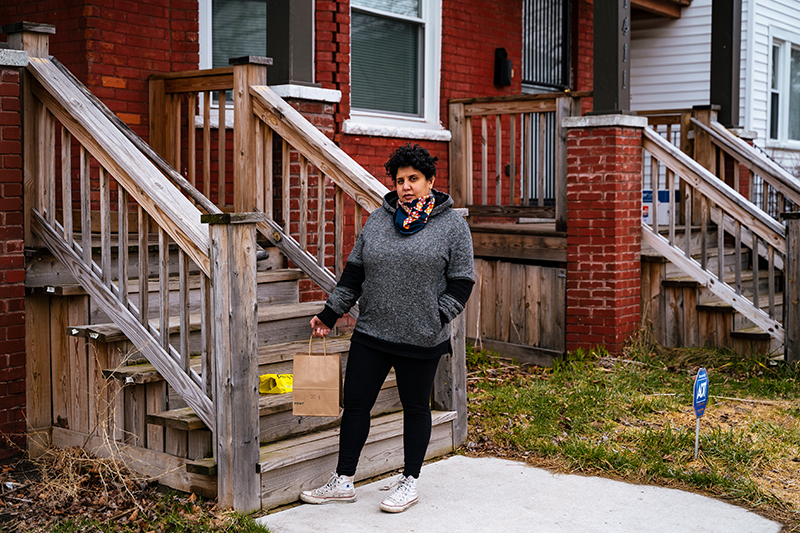Social distancing, while essential for combating the COVID-19 pandemic, has devastated Michigan’s restaurant scene. By late March, the state’s dining industry had lost an estimated $491 million in sales and more than 72,000 jobs, according to the Michigan Restaurant and Lodging Association. And while all restaurants, bars, and cafés have suffered, local food activist Devita Davison is especially concerned about the small, family-owned businesses she sees as the cornerstones of Detroit’s unique culinary identity. “Not everybody is going to come out of this,” she says. Here, Davison, the executive director of FoodLab Detroit, calls on all of us to join a movement in support of Detroit’s most vulnerable culinary entrepreneurs.

ĚÇĐÄvlog°˛×ż°ć Detroit: What exactly is happening in Detroit’s food industry?
Devita Davison: The restaurant industry all over the nation is in the fight for its professional lives. Overnight, close to 85% of a half a million restaurant workers lost their jobs. Could you imagine that? And that’s only the state of Michigan.
Describe the impact this crisis has had on the industry.
Millions of restaurant workers have always worked in an industry where they were one paycheck away from financial disaster. Restaurant workers are our most vulnerable and, in many cases, lowest-paid workers. Fast-food workers or servers or cooks or dishwashers — those aren’t really skilled laborers, right? They’re not highly skilled. They’re not highly trained. They’re not highly educated. But guess who’s on the front lines now making sure that when we go to the grocery stores, the shelves are stocked? Or risking their lives making sure that workers are delivering food to your door?Ěý
What needs to change?
Our economic policies in this country continue to prioritize those at the top instead of prioritizing community wealth. But now, the emergency is here. This is a moment where the choice is clear. We can either use this crisis as a chance to create a more democratic economy where we’re broadening ownership and wealth, supporting businesses that are grounded in their workers and communities, and trying to build businesses together that are owned by the community like a cooperative, or we continue to do business as usual when we come out of this crisis. The choice is ours.
What can the general public do right now?
I want people to be really aware where their money is going when donating to large organizations, because the goal should be to immediately get cash into the hands of these restaurant workers while we’re waiting for help from the federal government, the state, or the city. The organization that I will continue to give to is Giving Kitchen, which exists for emergency relief for restaurant workers. The James Beard Foundation has also set up a fund for a grant for restaurateurs. I’m looking specifically at organizations that have been doing this work and providing assistance to restaurant workers for years and will continue to do so for years to come.
Secondly, consumers need to reflect. Think about that restaurant you visited to celebrate your promotion or your anniversary or where you got engaged. Where were those moments of joy in your life and what restaurants contributed to them? Call or go to their website to ask how you can donate to those restaurants. Most places have GoFundMe accounts, and a lot of that money is going directly to their workers.
What about the restaurants that don’t have GoFundMe accounts or active websites?
Who suffers and who survives this crisis will fall unevenly across race and class. I’m not saying this to be hyperbolic — I’m saying it because it’s the truth. Some restaurants have the capability of quickly turning over their restaurants to places of curbside or delivery services. They’ve built up brand loyalty, so they already have a consumer base to draw from. Some of them even have databases because they take reservations, so they can reach out directly to their customers via emails and phone calls. But what about the mom-and-pops that don’t have any of that? Not everybody is going to come out of this. The restaurant industry is not going to look the same.Ěý
How can we help those mom-and-pops?
The call to action could be to provide pro bono services to family-owned restaurants. If you’re a lawyer, can you help businesses navigate finding the correct paperwork that they need for unemployment? If you’re a graphic artist or a marketeer, or you work in public relations, or if you’re a writer, they might need your help creating a website. Selling gift certificates, T-shirts, and sweatshirts and coffee mugs is not going to save us — it’s a Band-Aid. But it’s doing what it can to stop the bleeding for now.
Don’t Pause, Pivot
Restaurateurs in the Detroit food industry reinvent their models to accept takeout and delivery orders

In the early innings of the crisis, Sister Pie Owner Lisa Ludwinski and staff drew stars 7 feet apart from each other on the sidewalk for customers to stand on as they waited for their orders. Since this photo was taken in March, the bakery has shifted its focus to accommodate grocery orders for its West Village neighbors. Sister Pie, 8066 Kercheval Ave., Detroit; 313-447-5550;

With social distancing mandates in effect, Guerilla Food’s delivery service has tripled its orders. Customers are asked to leave a cooler at the door for contactless drop-offs.ĚýGuerilla Food, 2746 Vermont St., Detroit;

Monica Isaac, owner of Cairo Coffee, delivers a bag of roasted coffee to a customer in West Village. Cairo currently accepts online orders for delivery and offers curbside pickup for coffee, tea, pastries, and small event catering. Cairo Coffee at Savvy Chic, 2712 Riopelle St., Detroit; 313-833-8769
|
| Ěý |
|










